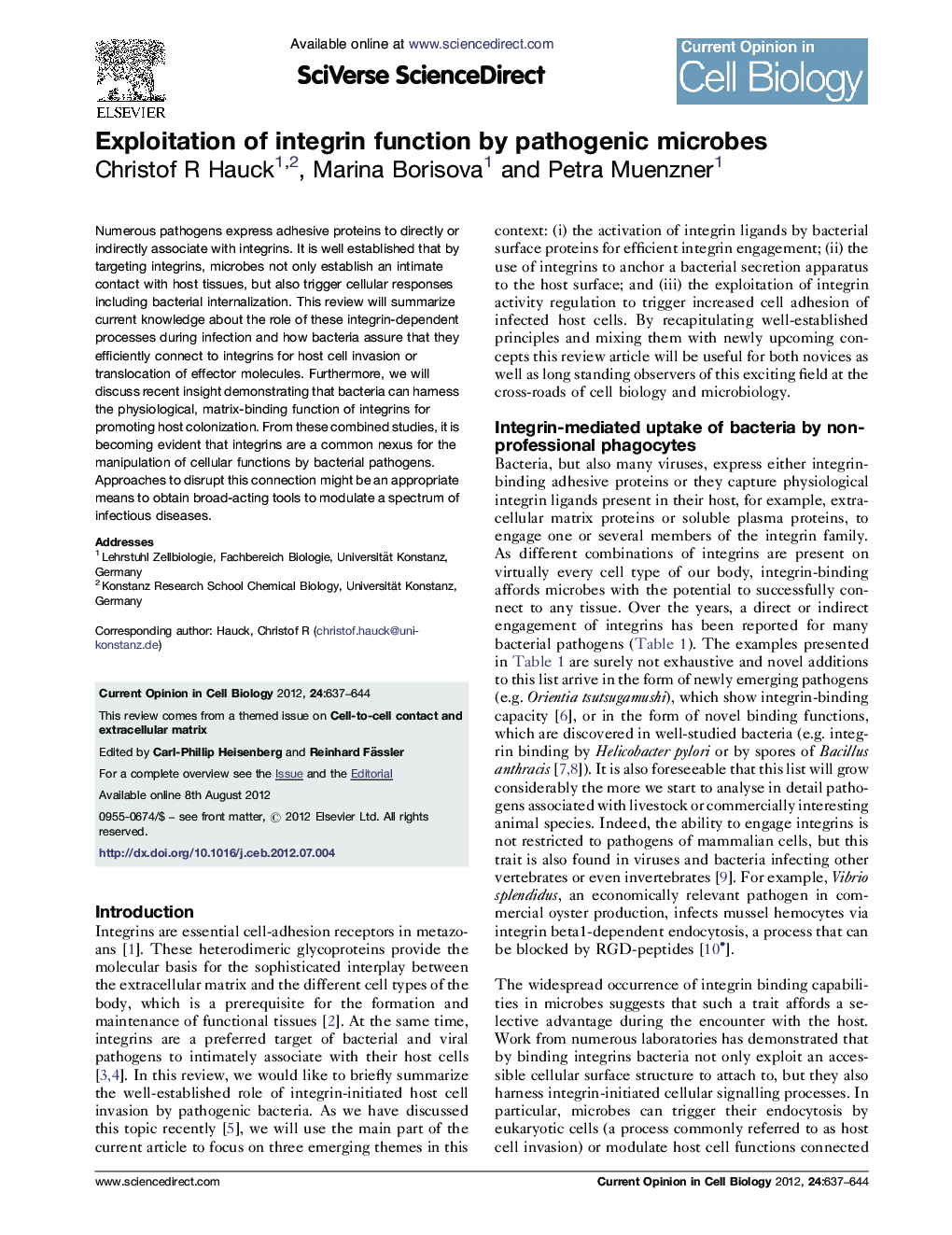| Article ID | Journal | Published Year | Pages | File Type |
|---|---|---|---|---|
| 10929188 | Current Opinion in Cell Biology | 2012 | 8 Pages |
Abstract
Numerous pathogens express adhesive proteins to directly or indirectly associate with integrins. It is well established that by targeting integrins, microbes not only establish an intimate contact with host tissues, but also trigger cellular responses including bacterial internalization. This review will summarize current knowledge about the role of these integrin-dependent processes during infection and how bacteria assure that they efficiently connect to integrins for host cell invasion or translocation of effector molecules. Furthermore, we will discuss recent insight demonstrating that bacteria can harness the physiological, matrix-binding function of integrins for promoting host colonization. From these combined studies, it is becoming evident that integrins are a common nexus for the manipulation of cellular functions by bacterial pathogens. Approaches to disrupt this connection might be an appropriate means to obtain broad-acting tools to modulate a spectrum of infectious diseases.
Related Topics
Life Sciences
Biochemistry, Genetics and Molecular Biology
Cell Biology
Authors
Christof R Hauck, Marina Borisova, Petra Muenzner,
